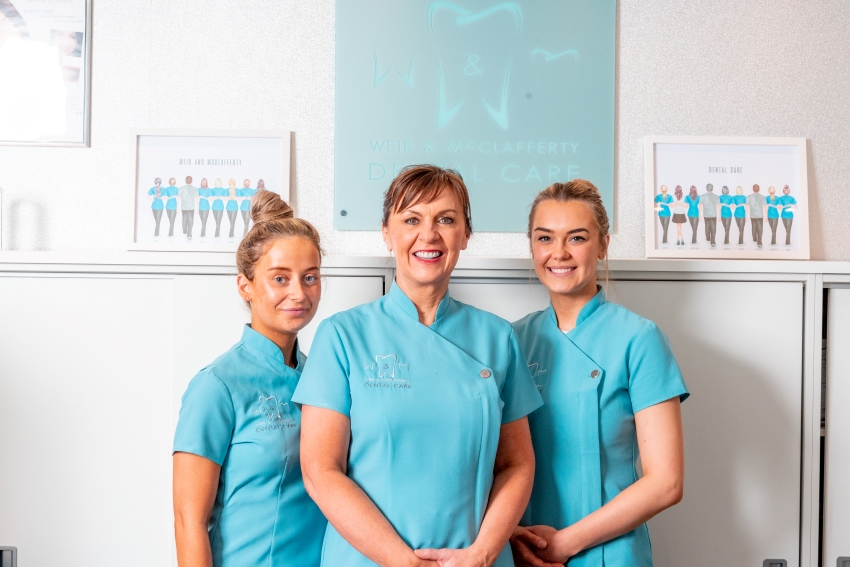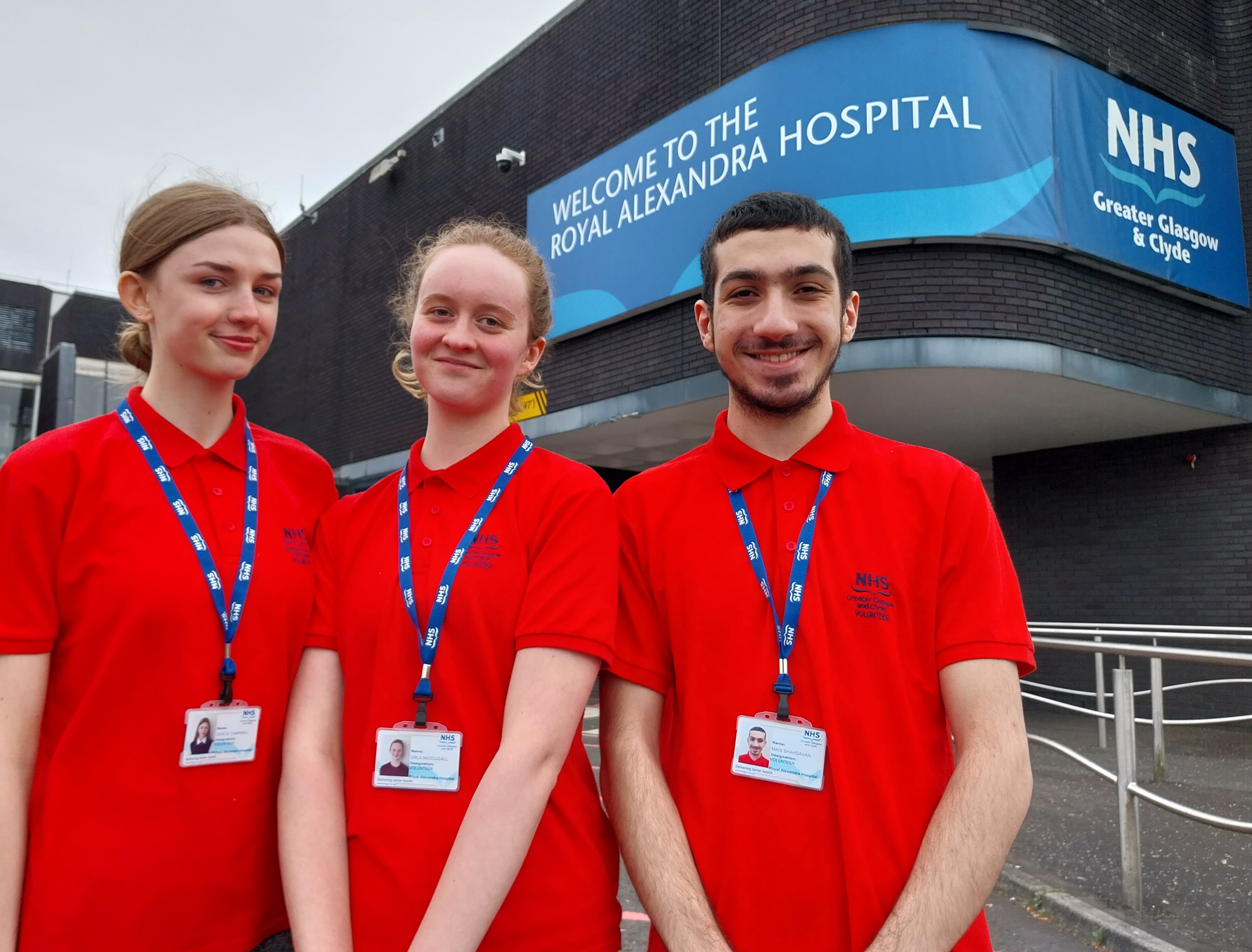Previous
Dental nurse
To become a dentist, you’ll need to complete an undergraduate Bachelor of Dental Surgery (BDS) degree programme. You must then register with the General Dental Council (GDC).
A dentist is a healthcare professional who provides advice, education, and treatment to help patients achieve and maintain good oral health. They also work hard to restore a patient’s dental health when it has been impaired.
Your understanding of dentistry may come from visits to your local dentist, who are also known as general dental practitioners (GDPs). Many qualified dentists work in general dental practice as one of the following:
In addition to caring for patients, dental practices get involved in training their dental team:
Some larger practices may also have additional staff, such as dental technicians. Find out more about other roles in the dental team.
This means that dentists need to have extensive clinical knowledge and good technical skills. They also need to have all the skills required to lead and manage a team and run a small business.

To be considered for entry to dental school, the following subjects are advised:
Speak to your guidance teacher or careers adviser about subjects offered at your school.

Most universities will insist that you have some first-hand experience of dental practice before they will consider your application. Your school should be able to help you arrange a work placement or a volunteering opportunity.
It is crucial in helping you decide if a career in dentistry is really what you want to pursue. It will also help you prepare for the dental school application and selection process.
To practise as a dentist, you must complete a Bachelor of Dental Surgery (BDS). In Scotland, 2 universities offer a 5-year, full-time undergraduate degree programme in Dentistry:
The University of Aberdeen's 4-year programme is open to graduates only.
You should contact the individual dental schools to find out about specific entry requirements. Search for pre-registration Dentistry university programmes on My World of Work.
All applicants must sit the online University Clinical Aptitude Test (UCAT) in the year of their application. This test is designed to help determine if you have the personal qualities, reasoning, and decision-making skills needed for a career as a dentist.
Dental schools expect you to meet the requirements of the General Dental Council (GDC) for fitness to practise. You’ll also need to undertake occupational health screening for blood-borne viral infections before starting the course.
Learn more about fitness to practise.
To practise safely in the UK, all dental professionals must have the necessary knowledge of English.
The GDC standards state that dental professionals must “be sufficiently fluent in written and spoken English to communicate effectively with patients, their relatives, the dental team, and other healthcare professionals in the United Kingdom.” Effective communication skills include:
Find out more about the GDC English language requirements for dental professionals.
Widening participation supports adult learners who want to go to university. If you’re an adult with few or no qualifications, you could get into higher education through the Scottish Wider Access Programme (SWAP). Many universities also provide access programmes to help you get the degree entry qualifications you need
After you graduate from university with a Bachelor of Dental Surgery (BDS), you will be registered with the General Dental Council, the governing body.
Following graduation, you’ll complete one year of vocational training (VT). It is known as foundation training in England and Wales.
VT takes place in an approved dental practice supervised by an experienced practitioner. Assessments take place throughout this year, and you’ll gain a Certificate of Satisfactory Completion of Training at the end of the year. You’ll then be eligible to apply for a health board list number which allows you to work as an associate or principal in an NHS general dental practice.
Satisfactory completion of vocational training marks the end of the training all dentists must complete. There are options for additional postgraduate training to enhance your clinical skills, leading to postgraduate specialisation.
General dental practitioners (GDPs) are self-employed. They are their own boss, running a business delivering health care. They work under a contract with the NHS or in the private healthcare sector outside the NHS.
A career in general dental practice is very rewarding, but it requires a high degree of skill, patience, resilience, and stamina. Each dental practice is unique, varying in the number of staff, the number of dental surgeries, the skill mix of the team and the types of treatments the patients either require or request.
As a dentist, you’ll give preventive advice and treat problems affecting the mouth and teeth. You will use your knowledge of human anatomy and oral diseases to educate, diagnose, and treat patients.
You’ll help patients protect their teeth and gums from decay and disease. In orthodontics, you’ll correct dental irregularities. You could also treat dental and facial injuries in oral surgery.
Tasks include:
You'll need these skills:
You’ll also need financial and business skills to manage your dental practice.
Dentists work with other healthcare professionals, including:
You could work in:
All dentists must undertake continuing professional development (CPD) throughout their working lives. The purpose of CPD is to maintain your skills, knowledge, and competence. It is a requirement of registration with the GDC.
Find out more about CPD for dental professionals.
You could become an associate or partner in a dental practice. An associate is an employee who is paid a percentage of their earnings by the practice. A partner is a part-owner of a practice, and a practice principal is usually the sole owner or the most senior dentist. With enough experience, you could start your own practice. You’ll be in control of managing staff, budgets, equipment, and the maintenance of your practice.
In addition to the General Dental Service (GDS), where all GDPs work, there are 2 other smaller services:
In each service, dentists and other members of the dental team provide advice and care for patients.
Dental core training is available throughout the UK. These posts usually last one year and are an optional follow-on from vocational training.
Dental core training 1 posts (DCT1) mainly consist of 6 months in the Public Dental Service and 6 months in the Hospital Dental Service. The aim is to provide a broader range of postgraduate training than can be included in vocational training alone.
Dental core training 2 posts usually consist of one year in the hospital dental service. This could be made up of 6 months of oral surgery and 6 months of paediatric dentistry.
There is an expectation that dental core trainees will complete additional postgraduate dental qualifications.
Find out more about dental core training.
Dental speciality training can take between 3 to 5 years, depending on your speciality. In Scotland, specialty programmes currently include:
Successful completion of specialist training can lead to a career in specialist dental practice or in the hospital dental service.
Find out more about dental specialty training.
Most dentists who undertake specialist training work in either the hospital dental service or in specialist practice. The best-known type of specialist practice is orthodontics.
The Public Dental Service is a salaried dental service, therefore not owned by dentists. It delivers routine and urgent dental care for priority group patients who have difficulty getting treatment in general dental practice.
Priority groups include the following:
You’ll start as a clinical dental officer and progress to senior roles by following an established career structure.
When you become a qualified dentist, you must register with the General Dental Council to work in the NHS.

Discover the skills and qualifications you’ll need for each role and what the work will be like.
Explore careers
Our blog includes how-to guides, case studies, and career resources.
Discover more